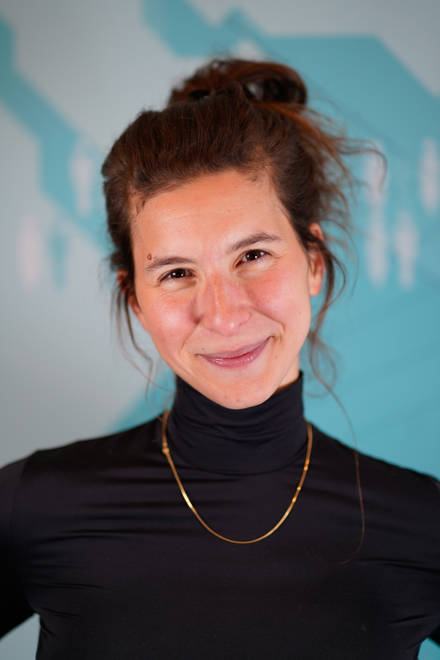Research interest
- Ex-combatant and veteran reintegration
- The psychology of rituals
- Women associated with armed groups

Email: julpal@prio.org
X: @juliapalik1
Research interest
I research how groups rebuild relationships after war, with a particular focus on the social reintegration of ex-combatants and veterans.
I am the Principal Investigator of the ERC Starting Grant, 'Com2Civ: Rituals in combatant-to-civilian transformation', a project which examines how rituals influence the social reintegration of ex-combatants.
My work draws on the intersection of political science, social psychology, and anthropology.
Here is my website. Here is my OSF profile.
I care about research impact. If you are a practitioner in the field of reintegration and are interested in collaborating with an academic, drop me a line.
Projects I lead
Projects I am a member of (as of 2025/26)
Extra
PRIO Paper
Conflict Trends
Journal article in Politics & Gender
Journal article in Civil Wars
PRIO Policy Brief
Journal article in Global Policy
Journal article in Journal of Peace Research
Journal article in Security Dialogue
Popular article in The Conversation
The deadline for the two postdoctoral positions has been extended to 26 January 2026. The positions, in social psychology and anthropology, are part of the ERC-funded project Rituals in Combatant-to-Civilian Transformation (Com2Civ), led by Júlia Palik.
PRIO researchers have recently been awarded grants for exciting new projects, from the Research Council of Norway (RCN) and the European Research Council (ERC).
PRIO is immensely proud to announce that Senior Researcher Julia Palik has been awarded the highly competitive European Research Council (ERC) Starting Grant for the groundbreaking project titled Com2Civ: Rituals in Combatant-to-Civilian Transformation.
EMPOW is a two-year initiative designed to provide novel open access data on women's mobilization for peace and gender equality reforms in the wake of war.
Gudrun Østby and Sebastian Schutte are replacing Scott Gates as Editors-in-Chief of the journal, while Juliane Stötter replaces Bertrand Lescher-Nuland as Managing Editor.
Over two dozen top peace negotiators gather this week in Oslo for the thirteenth UN High-Level Seminar on Gender and Inclusive Mediation Strategies.
The war in Ethiopia's Tigray region accounted for over 100,000 battle-related deaths in 2022, even more than Russia's invasion of Ukraine which accounted for more than 81,000 deaths, according to new conflict trends data released today.
Russia’s war in Ukraine has been met with global condemnation drawing NATO and the EU closer together in coordinating collective responses.
The most relevant PRIO researchers to comment on aspects relevant to the Russia-Ukraine War are listed here.